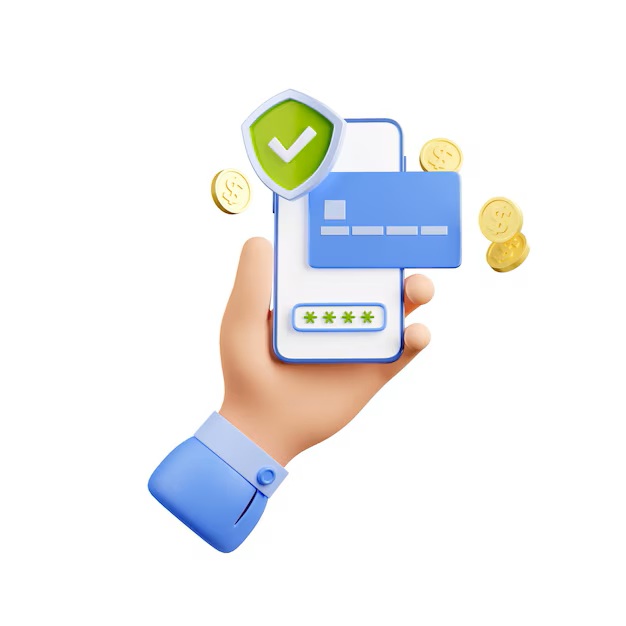At Wndeer, we have spent years building digital products for clients in the gambling sector. We have seen firsthand how new technologies are introduced, tested, and either adopted or abandoned based on performance, compliance, and user behavior. Among these, blockchain has stood out as a term that generates excitement, but also skepticism. It has been promoted as a mechanism for transparency, decentralization, and trust. But does it actually deliver these benefits to gambling operators and users? Or is it more aligned with inflated expectations rather than practical application?
This article examines blockchain’s impact on the gambling industry based on real developments, regulatory shifts, and usage statistics. We focus on facts — not marketing promises — and provide a grounded assessment of whether blockchain has a real place in the gambling industry or if it is currently more hype than reality.
Verified Use Cases of Blockchain in Gambling
Blockchain’s first application in gambling dates back to 2012, with SatoshiDice, a bitcoin-based betting game launched by Erik Voorhees. It used the Bitcoin blockchain to record bets and outcomes, making the process auditable. This was not just a conceptual demonstration but a commercially viable product at the time. In fact, by 2013, SatoshiDice was responsible for more than half of all Bitcoin transactions. However, it also ran into legal issues in the United States due to unlicensed gambling operations, prompting Voorhees to sell the platform for 126,315 BTC in July 2013.
Since then, a number of platforms have used blockchain technology to various degrees. FunFair, launched in 2017, is one of the more well-known Ethereum-based platforms that offers smart contract-powered games. Smart contracts are intended to execute wagers and payouts automatically, removing the need for a centralized operator to manage funds or results.
Another example is Edgeless, which claims a 0% house edge in selected games and verifies outcomes through smart contracts. Unlike many blockchain gambling platforms that faded into obscurity after their ICOs, Edgeless continued development and acquired licenses from regulated jurisdictions like Curacao. However, adoption levels have remained low compared to traditional platforms like Bet365 or DraftKings.
Decentralized casinos, such as those built on the TRON network (e.g., WINk), have tried to combine blockchain with community ownership and staking rewards. These platforms often operate in regulatory grey areas and primarily attract users from countries with fewer restrictions on online gambling. As of 2023, WINk still exists but has limited reach compared to mainstream gambling brands.
So while there are functioning blockchain gambling platforms, they largely remain niche. Their markets are small and heavily reliant on crypto-savvy users. The vast majority of online gambling continues to operate through conventional centralized systems, licensed by authorities such as the UK Gambling Commission, Malta Gaming Authority, and Kahnawake Gaming Commission.
Transparency and Regulation: Promise Versus Reality
Transparency is often cited as blockchain’s most obvious benefit. In theory, users can verify game outcomes, check transaction histories, and ensure that the odds are provably fair. However, in practice, this level of transparency has not translated into widespread user trust or compliance acceptance.
Traditional gambling platforms that operate under regulated licenses already submit their software for testing to independent auditors like eCOGRA, GLI, or iTech Labs. These companies test and certify random number generators (RNGs) to ensure fairness. Operators must comply with strict reporting, KYC, and anti-money laundering (AML) obligations. Blockchain platforms, on the other hand, often bypass such requirements by operating in decentralized or unregulated spaces. This creates a fundamental issue for long-term legitimacy.
For example, despite its popularity among crypto users, Stake.com, a major crypto gambling site, is banned in multiple countries, including the UK, where the Gambling Commission labeled its operation unlawful. Stake.com’s use of cryptocurrencies does not exempt it from compliance requirements, and this has been echoed by regulatory bodies worldwide.
Even where blockchain is used for verifiability, the technical complexity creates barriers. A typical user does not have the skills or time to audit smart contracts or understand transaction data on block explorers. Third-party trust is not removed — it is simply shifted to developers and smart contract authors, many of whom remain anonymous. This directly contradicts the original vision of blockchain as a tool for decentralization and user empowerment.
Blockchain’s Role in Payment Systems

Where blockchain has arguably seen the most practical uptake in gambling is payments. Cryptocurrencies like Bitcoin, Ethereum, and USDT are increasingly accepted on gambling platforms as deposit and withdrawal methods. According to a 2023 report by SoftSwiss, cryptocurrency payments accounted for 28% of all transactions on their white-label gambling platforms. This shows real user demand for crypto-based transactions.
However, the use of cryptocurrencies as payment does not require blockchain-based games. Most crypto casinos still use centralized software, regulated RNGs, and traditional backend logic — only the payment rails differ. Players may deposit in crypto, but they are still trusting a centralized operator to process withdrawals, manage balances, and resolve disputes.
The adoption of crypto payments is also facing growing legal scrutiny. Countries like the Netherlands and Germany require strict AML compliance, including verification of the source of funds. Crypto anonymity is incompatible with these laws unless additional verification measures are added, which reduces the privacy appeal of blockchain payments.
On the operator side, crypto offers faster settlements and lower payment processing fees. However, volatility remains a challenge. Even with stablecoins, issues related to gas fees and network congestion — particularly on Ethereum — create operational risks. Platforms such as Rollbit and BC.Game have attempted to mitigate this by using off-chain systems or Layer 2 solutions, but that reintroduces centralized dependencies.
The Business Reality for Gambling Operators
For most licensed operators, the introduction of blockchain creates more complexity than value. Game licensing authorities rarely accept blockchain contracts as a substitute for traditional RNG audits. Jurisdictions like the UK, Sweden, and Spain require specific software certifications, responsible gambling tools, and account-based controls that are difficult to enforce through decentralized platforms.
Investors in gambling technology have also shown limited enthusiasm for blockchain ventures. After the 2017-2018 ICO boom, most blockchain-based gambling tokens lost value rapidly. According to data from CoinMarketCap, tokens like FUN (FunFair) and EDG (Edgeless) have seen over 90% declines from their all-time highs. This suggests that speculative hype was not matched by sustainable business models or real user adoption.
Large companies in the gambling sector, such as Entain, Flutter Entertainment, and Betsson, have not prioritized blockchain in their technology strategies. While some have invested in machine learning and real-time analytics, blockchain is often seen as peripheral. Even Playtech, a leading gaming software supplier, has not made blockchain a core part of its roadmap, focusing instead on omnichannel integrations and mobile UX improvements.
Conclusion: Technology with Narrow Application
From our perspective at Wndeer, where we design products for regulated gambling operators, blockchain is a tool with narrow applications. Its value in payments is undeniable, especially for operators serving crypto-literate audiences in loosely regulated regions. However, when it comes to game mechanics, fairness verification, or compliance automation, the technology still faces unresolved hurdles.
The promise of decentralization has not materialized in a form acceptable to major licensing bodies. Instead of replacing trust with code, blockchain in gambling often adds a layer of complexity without removing the need for trust in developers and operators. For users, the benefits are limited unless they already have the technical knowledge and motivation to verify blockchain activity themselves.
For now, blockchain in gambling is not a breakthrough — it is a niche. Whether it grows beyond that will depend less on technological possibility and more on how regulators, users, and business leaders respond to its actual implementation. Until then, most of our clients are continuing to prioritize UI improvements, mobile responsiveness, and responsible gambling features — areas with clear impact on both user engagement and regulatory compliance.

